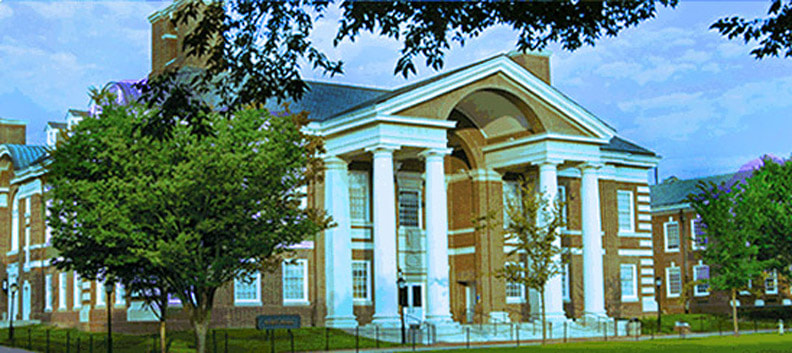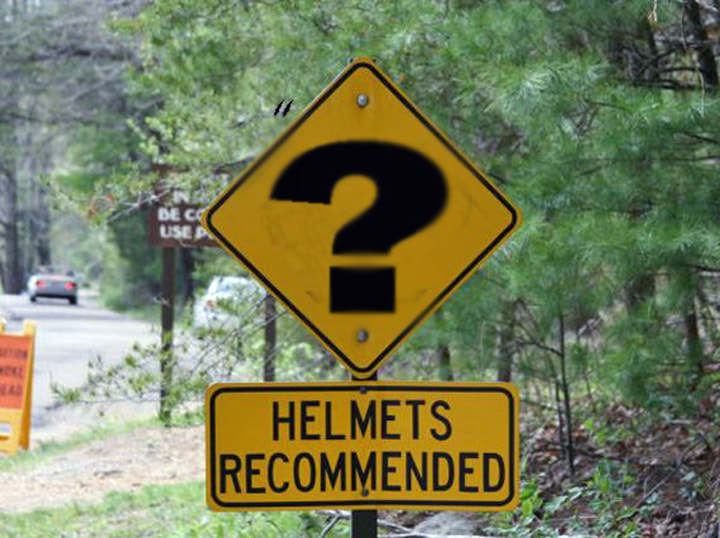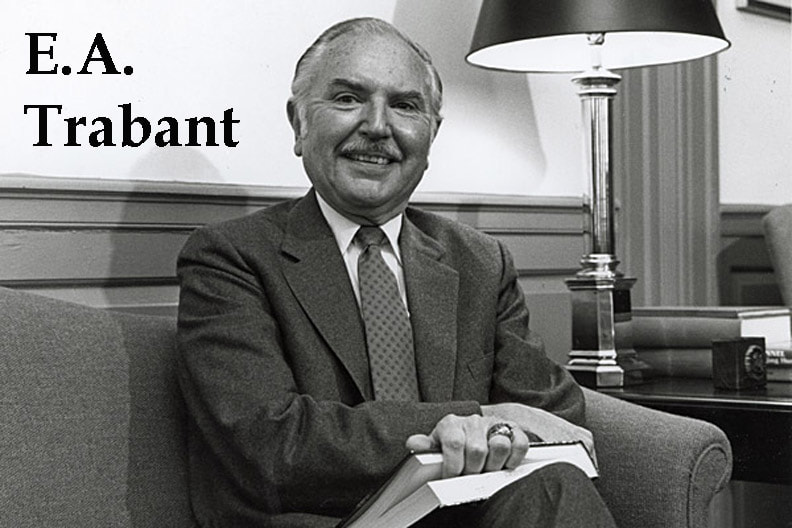When I was in college, I had a cash flow problem my first two years. My parents paid for a five-day meal plan which meant I had to forage for nuts, berries, and beers on the weekend. I still had an apitite supressant habit (AKA a cigarette habit) so that was another drain on my budget.
And then there were the drugs.
Oh, no, not those drugs. I know what you're thinking. College, musician, dorm life. I'm talking about books and the college bookstore, the ultimate drug for me in those days.
And by the way, for your information, I never bought any of those other drugs. They were always given to me for free. I was a musician, remember?
I was in the university drugstore (AKA bookstore) one day and there was a musical score on a shelf to a piece that I loved and always wanted to analyze. There was only one copy – it had been ordered by mistake.
Unfortunately, it had a price tag of $30 and that was way beyond my means at that point. I went to my closet, searched through all my pockets, came up with a few quarters and dimes, but that was it. I was telling everybody who would listen how much I wanted to get this score, how much it meant to me, how great it would be to read it and to understand it, to tuck it in on my bookshelf at night. You get the idea.
I knew I was whining but I couldn’t help myself. I wasn’t as bad as a kid on his hands and knees in the Target parking lot screaming at his mother, “You didn’t buy MY toy! You bought a toy for YOU! But you didn’t but MYYYYY TOYYYYY!” but it demonstrated the same want of character.
I was sitting at the dining hall telling people my book story when someone passed by with their tray and said, “You might want to go to 221 Hullihen Hall. They'll give you the money.”
“Huh?”
“Seriously, go, they’ll give you the money.”
And like that tray-guy was gone.
Hullihen Hall was the seat of university power in those days. It housed the Bursar's Office, the Admissions Office, the President's Office, the Dean's Office - if you were important at the University of Delaware, your mailing address was probably in Hullihen Hall. It was situated on the North Mall about a quarter of a mile away from my dorm.
And then there were the drugs.
Oh, no, not those drugs. I know what you're thinking. College, musician, dorm life. I'm talking about books and the college bookstore, the ultimate drug for me in those days.
And by the way, for your information, I never bought any of those other drugs. They were always given to me for free. I was a musician, remember?
I was in the university drugstore (AKA bookstore) one day and there was a musical score on a shelf to a piece that I loved and always wanted to analyze. There was only one copy – it had been ordered by mistake.
Unfortunately, it had a price tag of $30 and that was way beyond my means at that point. I went to my closet, searched through all my pockets, came up with a few quarters and dimes, but that was it. I was telling everybody who would listen how much I wanted to get this score, how much it meant to me, how great it would be to read it and to understand it, to tuck it in on my bookshelf at night. You get the idea.
I knew I was whining but I couldn’t help myself. I wasn’t as bad as a kid on his hands and knees in the Target parking lot screaming at his mother, “You didn’t buy MY toy! You bought a toy for YOU! But you didn’t but MYYYYY TOYYYYY!” but it demonstrated the same want of character.
I was sitting at the dining hall telling people my book story when someone passed by with their tray and said, “You might want to go to 221 Hullihen Hall. They'll give you the money.”
“Huh?”
“Seriously, go, they’ll give you the money.”
And like that tray-guy was gone.
Hullihen Hall was the seat of university power in those days. It housed the Bursar's Office, the Admissions Office, the President's Office, the Dean's Office - if you were important at the University of Delaware, your mailing address was probably in Hullihen Hall. It was situated on the North Mall about a quarter of a mile away from my dorm.
The next day, I built up a little courage and strolled through the doors, up to the second floor, and I found room 221. I had a sudden feeling that I didn’t belong there.

I timidly knocked on the door and someone said to come in. Inside the room was a middle-aged balding man in a suit, sitting at a desk with a newspaper and a phone on it. There were nondescript university prints on the wall and one chair in front of the desk.
“Have a seat”, he said. “Why are you here?”
”A friend told me I could borrow some money here.”
“How much money are we talking about?”
“Thirty dollars?”
“And what do you need this money for?”
“You see, there's this book – it’s actually a score, a musical score, and I’m a music major, and I was thinking - and it's really good and it's so cool and a recording of it was written up in the New York Times and it cost $30 and they have it and –“
By that point I was babbling. He gestured for me to stop talking with his left hand.
“Have a seat”, he said. “Why are you here?”
”A friend told me I could borrow some money here.”
“How much money are we talking about?”
“Thirty dollars?”
“And what do you need this money for?”
“You see, there's this book – it’s actually a score, a musical score, and I’m a music major, and I was thinking - and it's really good and it's so cool and a recording of it was written up in the New York Times and it cost $30 and they have it and –“
By that point I was babbling. He gestured for me to stop talking with his left hand.
NOTABLE QUESTION UP AHEAD!
“When will you pay it back?”
I hadn't anticipated that question as much as I should have. I had never accepted out-and-out charity before and I knew my parents would have asked the same question.
“Well, I have two gigs this weekend at a church and two gigs next weekend and I have another bigger gig in three weeks and . . . . , I know I can do it by three weeks.”
“Fine.” He opened a drawer in the desk, pulled out three tens, gave them to me and said, “See you in three weeks. Close the door on your way out.”
And I left and I went straight away and got that score.
Twenty days later, I went back to 221 Hullihen Hall to pay back my $30.
I knocked on the door, someone said come in, and there was a different man behind the desk, older with a beard and a book. I explained that I owed $30 and that I had it. He took the money, put it in the same desk drawer the other man had taken it out of, and said, “Thanks”.
And that was it.
As I was walking down the hallway, I realized that I never signed anything. That didn’t seem right. They just gave me the money and I paid it back. What if . . . .
Twenty years later, I was playing double bass in a jazz trio at a private high-rise cocktail party in the Brandywine Valley by the Augustine Cut-Off Bridge. It was Doctor Audrey Doberstein’s penthouse apartment. Dr. Doberstein was the president of Wilmington College.
One of the attendees at the party was E.A. Trabant, the president of the University of Delaware when I attended. I knew E.A. and his wife Jerry peripherally from teaching their daughter, Amanda, at a private school in Wilmington. At this point I was in my 40’s.
One of the rules of the road for musicians is that the guests usually don't want to intertwine with the hired help so when you're on break, you find a place far away from the crowd to sit or stand with your tonic water. But I decided to go up and talk to him.
He remembered me from the private school and his daughter.
“Dr. Trabant, I have a question to ask you. It's been nagging me for years. In fact it's gotten to the point where I don't know if it actually happened or if I dreamed it.”
At this point he was already laughing and had just asked someone to bring him another drink. I told him the story of 221 Hullihen Hall.
“Did that actually happen? Did I imagine it?”
By now he was in a full-throated guffaw.
“Why of course it happened. It was the damndest thing. We were having a lack-luster board meeting one day and those things can get long-winded and stuffy. And most of the people at those meetings have very important lives and the time often feels a little wasted to them. This one day, someone blurted out, ‘Enough of this horseshit. What do kids really need?’ and somebody said ‘Well, I bet somedays what they could use is a small loan, a little bit of cash, something to tide them over.’
And all of them started talking about when they were that age and how they ran into cash problems like that. There was an empty box in the boardroom and someone put it on the table and said, ‘Okay everybody, feed the kitty.’ And they started laughing and the bills started flying. Within a few minutes, we had several thousand dollars.
That money was put in a cash box. They asked if there were any spare rooms where they could get this started and I suggested upstairs at 221. So they decided they would all take turns spending a day behind the desk or sending someone from their company to sit behind the desk at 221. They had a sign-up schedule. We didn't advertise it but we did let a few support people student health know about it.
One of the things all the board members were adamant about was that it was to be on the honor system, no contracts, no names, no phone numbers, just give them the money, keep a balance sheet, find out when they're going to bring it back, and it'll come back.”
E.A. saw the look of wonder on my face and said, “And I know what you're thinking: no, we were never stiffed. Every dollar that we sent out - and we gave out thousands - every dollar came back to us. Maybe not always on time, but it came back to us. We did this for a about a year and the need seemed to taper off and the board members decided just to kick the money into a student need fun that was already set up at the Student Center.”
There was time for one more notable question – this time from E.A..
“Now, son, could you get someone to freshen up this Manhattan for me, please?
And that was that.
I hadn't anticipated that question as much as I should have. I had never accepted out-and-out charity before and I knew my parents would have asked the same question.
“Well, I have two gigs this weekend at a church and two gigs next weekend and I have another bigger gig in three weeks and . . . . , I know I can do it by three weeks.”
“Fine.” He opened a drawer in the desk, pulled out three tens, gave them to me and said, “See you in three weeks. Close the door on your way out.”
And I left and I went straight away and got that score.
Twenty days later, I went back to 221 Hullihen Hall to pay back my $30.
I knocked on the door, someone said come in, and there was a different man behind the desk, older with a beard and a book. I explained that I owed $30 and that I had it. He took the money, put it in the same desk drawer the other man had taken it out of, and said, “Thanks”.
And that was it.
As I was walking down the hallway, I realized that I never signed anything. That didn’t seem right. They just gave me the money and I paid it back. What if . . . .
Twenty years later, I was playing double bass in a jazz trio at a private high-rise cocktail party in the Brandywine Valley by the Augustine Cut-Off Bridge. It was Doctor Audrey Doberstein’s penthouse apartment. Dr. Doberstein was the president of Wilmington College.
One of the attendees at the party was E.A. Trabant, the president of the University of Delaware when I attended. I knew E.A. and his wife Jerry peripherally from teaching their daughter, Amanda, at a private school in Wilmington. At this point I was in my 40’s.
One of the rules of the road for musicians is that the guests usually don't want to intertwine with the hired help so when you're on break, you find a place far away from the crowd to sit or stand with your tonic water. But I decided to go up and talk to him.
He remembered me from the private school and his daughter.
“Dr. Trabant, I have a question to ask you. It's been nagging me for years. In fact it's gotten to the point where I don't know if it actually happened or if I dreamed it.”
At this point he was already laughing and had just asked someone to bring him another drink. I told him the story of 221 Hullihen Hall.
“Did that actually happen? Did I imagine it?”
By now he was in a full-throated guffaw.
“Why of course it happened. It was the damndest thing. We were having a lack-luster board meeting one day and those things can get long-winded and stuffy. And most of the people at those meetings have very important lives and the time often feels a little wasted to them. This one day, someone blurted out, ‘Enough of this horseshit. What do kids really need?’ and somebody said ‘Well, I bet somedays what they could use is a small loan, a little bit of cash, something to tide them over.’
And all of them started talking about when they were that age and how they ran into cash problems like that. There was an empty box in the boardroom and someone put it on the table and said, ‘Okay everybody, feed the kitty.’ And they started laughing and the bills started flying. Within a few minutes, we had several thousand dollars.
That money was put in a cash box. They asked if there were any spare rooms where they could get this started and I suggested upstairs at 221. So they decided they would all take turns spending a day behind the desk or sending someone from their company to sit behind the desk at 221. They had a sign-up schedule. We didn't advertise it but we did let a few support people student health know about it.
One of the things all the board members were adamant about was that it was to be on the honor system, no contracts, no names, no phone numbers, just give them the money, keep a balance sheet, find out when they're going to bring it back, and it'll come back.”
E.A. saw the look of wonder on my face and said, “And I know what you're thinking: no, we were never stiffed. Every dollar that we sent out - and we gave out thousands - every dollar came back to us. Maybe not always on time, but it came back to us. We did this for a about a year and the need seemed to taper off and the board members decided just to kick the money into a student need fun that was already set up at the Student Center.”
There was time for one more notable question – this time from E.A..
“Now, son, could you get someone to freshen up this Manhattan for me, please?
And that was that.



 RSS Feed
RSS Feed